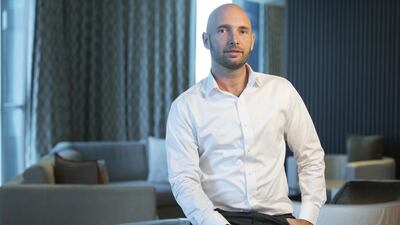While conglomerates are well known in the business world, you may be not as familiar with an “agglomerate”.
In urban economics, agglomeration describes the benefits that firms obtain by locating near each other. Singapore-based private equity firm Unity Group has used the concept of agglomeration to create a new way of financing and setting up international collectives of small and medium-sized enterprises (SMEs).
And they do mean SMEs, not start-ups. “Defining yourself as a start-up destroys credibility. It says you’re just an idea,” says partner Callum Laing, who is head of Asia for the group. “Anyone I know who is successfully doing business describes themselves as a business owner, even if they started the business yesterday. They will explain that they have 10 years of experience or 40 years in total in the management team.”
Unity Group’s first agglomerate is The Marketing Group plc (the agglomerate parent is usually made a UK plc for legal and tax reasons), which brings together 19 companies.
Now the concept could be heading here. Unity Group also plans to set up some 10 more agglomerates in the next year. Each will be industry-specific – including technology, finance, childcare and fitness and health – but geographically diverse. Mr Laing recently visited Dubai looking for promising additions to the groups.
So how does it work?
Listing publicly four months ago with four companies in the fold, The Marketing Group (TMG) has since added another 15 to the family. Profits, says Mr Laing, have gone from €1.4 million (Dh5.6m) to €12.5m.
Small businesses swap out their private stock for public shares in the agglomerate and become significant shareholders in the parent business.
Each business in an agglomerate continues to run autonomously – and without any say in how the other firms are run.
“This is a collaborative IPO with a vested interest and amazing synergies,” says Mr Laing. He stresses that it is nothing like a roll-up merger or acquisition, where functions like sales and finance are consolidated.
“The problem with a roll-up is you buy a company because you like it then you try to tell it how to run itself. Coming from an entrepreneurial background, we think the best people to run small businesses are small business owners and their teams.”
There are major advantages for the owners, says Laurent Verrier, chief executive and founder of Singapore-based social media firm One9ninety, now part of TMG.
“The financial risk is less overall. It unlocks the value of the SMEs that are part of TMG: the listing brought liquidity to the businesses. And the founders get more sleep. Liquidity transforms everything.”
Agglomeration puts SMEs on a level playing field with big businesses, says Mr Laing, and solves their common problem of scale.
It allows a small business to present itself as being part of a “US$100 million global entity, with 50 different businesses in 50 countries”, he says – and then it can go after big contracts.
This model also helps to attract senior staff who may otherwise be put off by a risky small business, he adds. They can be offered stock options in a publicly listed company, rather than private equity.
Unity Group takes a share of about 15 per cent of every publicly listed vehicle it sets up.
It will source companies to form and add to the agglomerates it manages, doing the due diligence and legalities.
“We offer a fair price for each company,” Mr Laing says. “We look at global valuations for similar ones. They’re not selling, after all – they’re keeping control and swapping shares.”
TMG was listed on Nasdaq First North in Stockholm, Sweden, in June. The market was chosen because “it is the most liquid market in the world”, says Mr Laing, “with a very high volume of trading after listing”.
TMG has a “pretty strong foothold” in Asia, Europe and the east and west coasts of the US, says Mr Verrier. “Adding the Middle East would definitely fill a gap in our geographical foothold and capabilities,” he adds.
“We are also incubating a couple of technology companies which would greatly benefit from a partner’s support to go to market in the Middle East.”
Prem Ramachandran, managing director of UAE-based White Water Public Relations, says while the SME segment significantly contributes to the UAE’s GDP, it is important for them to perform and stay ahead.
“Agglomeration can definitely help them consolidate their business and scale up,” he says.
Businesses looking to join a Unity Group agglomerate must be solvent and earning around $3m or more in revenue, or $500,000 net profit. “We like well-established companies run by grown-ups,” Mr Laing adds.
business@thenational.ae
Follow The National's Business section on Twitter

